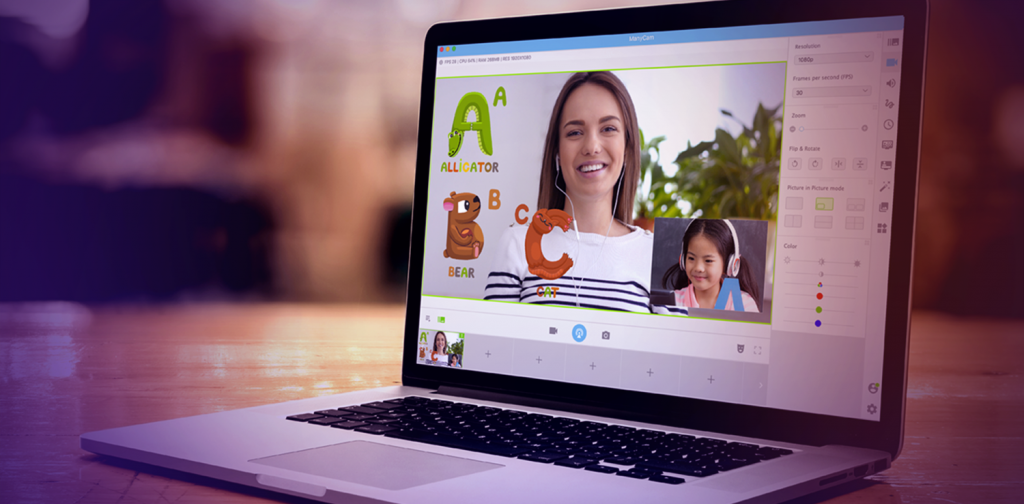1. Introduction
- Importance of live streaming in modern education
- Overview of article content
2. The Evolution of Education
- Traditional education methods
- Introduction to digital learning
3. What is Live Streaming?
- Definition and explanation
- Difference between recorded and live sessions
4. Benefits of Live Streaming in Education
- Real-time interaction
- Accessibility and inclusivity
- Flexibility in learning
- Enhanced engagement
5. Technological Advancements Supporting Live Streaming
- Internet speed and reliability
- Advanced streaming platforms
- Integration with educational tools
6. Live Streaming Platforms for Education
- Zoom
- Microsoft Teams
- Google Meet
- Specialized educational platforms
7. How Educators Can Utilize Live Streaming
- Live lectures
- Virtual classrooms
- Interactive workshops
- Guest speaker sessions
8. Case Studies of Successful Live Streaming in Education
- University implementations
- K-12 success stories
- Corporate training programs
9. Challenges and Solutions in Live Streaming Education
- Technical difficulties
- Engagement issues
- Privacy concerns
- Solutions to overcome these challenges
10. The Future of Live Streaming in Education
- Predicted trends
- Potential innovations
11. Impact of Live Streaming on Student Performance
- Studies and statistics
- Personal anecdotes
12. Live Streaming and Lifelong Learning
- Professional development
- Skill-based learning
13. Creating Effective Live Streaming Content
- Planning and preparation
- Engaging presentation techniques
14. Tips for Students to Maximize Learning via Live Streaming
- Setting up a conducive learning environment
- Active participation strategies
15. Conclusion
- Recap of key points
- Final thoughts on the potential of live streaming in education
16. FAQs
- How can live streaming enhance traditional classroom teaching?
- What equipment is necessary for live streaming?
- Are there any free platforms for live streaming education?
- How can educators ensure student engagement during live streams?
- What are the best practices for maintaining privacy in live streaming?
The Evergrowing Potential of Live Streaming for Education
Introduction
live streaming has emerged as a powerful tool, bridging gaps and creating new opportunities for learners and educators alike. This article delves into the transformative potential of live streaming in the educational sector, exploring its benefits, challenges, and future prospects.
The Evolution of Education
Traditional education has long been characterized by in-person lectures, rigid schedules, and a one-size-fits-all approach. However, the advent of digital learning has revolutionized the way knowledge is imparted and absorbed. Digital platforms have made education more accessible, flexible, and personalized, setting the stage for the integration of live streaming into mainstream education.
What is Live Streaming?
Live streaming refers to the real-time transmission of video and audio over the internet. Unlike pre-recorded sessions, live streams offer immediate interaction between the presenter and the audience, creating a dynamic and engaging learning environment. This immediacy fosters a sense of community and connection that recorded videos often lack.
Benefits of Live Streaming in Education
Real-time Interaction
One of the most significant advantages of live streaming is the ability to interact in real-time. Students can ask questions, seek clarifications, and participate in discussions as the lesson unfolds, mimicking the interactive nature of traditional classrooms.
Accessibility and Inclusivity
Live streaming breaks down geographical barriers, allowing students from remote areas or different countries to access quality education. It also supports inclusive education by providing accommodations such as subtitles and sign language interpreters for students with disabilities.
Flexibility in Learning
Students can join live sessions from the comfort of their homes or any location with internet access. This flexibility is particularly beneficial for working professionals and those juggling multiple responsibilities.
Enhanced Engagement
Live streaming incorporates various multimedia elements such as videos, animations, and live polls, which make learning more engaging and enjoyable. This multisensory approach helps in retaining students' attention and improving comprehension.
Technological Advancements Supporting Live Streaming
Internet Speed and Reliability
The widespread availability of high-speed internet has made live streaming more feasible and reliable. Faster internet speeds reduce buffering issues and ensure a smooth viewing experience.
Advanced Streaming Platforms
Numerous platforms have been developed to support live streaming in education. These platforms offer features like screen sharing, interactive whiteboards, and breakout rooms, enhancing the overall learning experience.
Integration with Educational Tools
Live streaming platforms can integrate seamlessly with other educational tools such as Learning Management Systems (LMS), providing a cohesive and comprehensive learning environment.
Live Streaming Platforms for Education
Zoom
Zoom has become a household name, particularly in the realm of online education. Its user-friendly interface and robust features make it a popular choice for virtual classrooms.
Microsoft Teams
Microsoft Teams offers a suite of tools for collaboration and communication, making it ideal for educational purposes. Its integration with other Microsoft Office applications is a significant advantage.
Google Meet
Google Meet provides a straightforward and efficient platform for live streaming educational content. Its ease of use and accessibility make it a favored option for many educators.

Specialized Educational Platforms
Platforms like Teachable, Coursera, and Khan Academy have incorporated live streaming features, catering specifically to the needs of the educational community.
How Educators Can Utilize Live Streaming
Live Lectures
Educators can deliver live lectures, allowing for real-time interaction and immediate feedback. This method keeps students engaged and fosters a sense of connection.
Virtual Classrooms
Live streaming enables the creation of virtual classrooms where students can collaborate, share ideas, and participate in group activities, replicating the traditional classroom experience.
Interactive Workshops
Interactive workshops conducted via live streaming offer hands-on learning experiences. Students can engage in practical exercises and receive instant feedback from instructors.
Guest Speaker Sessions
Live streaming allows educators to invite guest speakers from around the world, providing students with diverse perspectives and expert insights.
Case Studies of Successful Live Streaming in Education
University Implementations
Several universities have successfully integrated live streaming into their curriculum. For instance, Harvard University offers live-streamed lectures for many of its courses, reaching students worldwide.
K-12 Success Stories
Many K-12 schools have adopted live streaming to enhance their teaching methods. A notable example is the Los Angeles Unified School District, which has used live streaming to ensure continuity of education during the pandemic.
Corporate Training Programs
Corporations have leveraged live streaming for training and development programs. Companies like IBM and Google use live streaming to train their global workforce efficiently.
Challenges and Solutions in Live Streaming Education
Technical Difficulties
Technical issues such as poor internet connection and platform glitches can disrupt live sessions. Investing in reliable technology and conducting regular checks can mitigate these problems.
Engagement Issues
Maintaining student engagement in a virtual environment can be challenging. Incorporating interactive elements and regularly soliciting feedback can help keep students engaged.
Privacy Concerns
Privacy concerns arise when live streaming involves recording and sharing sessions. Educators must ensure compliance with privacy regulations and obtain necessary consents from participants.
Solutions to Overcome These Challenges
To address these challenges, educators can provide technical support, use engaging teaching methods, and establish clear privacy policies. Continuous professional development for educators is also crucial in adapting to live streaming technology.
The Future of Live Streaming in Education
Predicted Trends
The future of live streaming in education looks promising, with trends indicating increased adoption and technological advancements. Virtual reality (VR) and augmented reality (AR) are expected to enhance live streaming experiences further.
Potential Innovations
Innovations such as AI-driven analytics and personalized learning experiences are on the horizon. These advancements will enable more tailored and effective educational experiences through live streaming.
Impact of Live Streaming on Student Performance
Studies and Statistics
Research has shown that live streaming can positively impact student performance. A study by the University of Central Florida found that students in live-streamed classes performed better than those in traditional classrooms.
Personal Anecdotes
Students and educators alike have shared positive experiences with live streaming. Many report increased engagement, better understanding of the material, and greater flexibility in managing their schedules.
Live Streaming and Lifelong Learning
Professional Development
Live streaming is a valuable tool for professional development. Professionals can attend webinars, workshops, and training sessions from anywhere in the world, continuing their education throughout their careers.
Skill-based Learning
Platforms like Udemy and LinkedIn Learning offer live streaming courses focused on skill-based learning. These courses cater to individuals seeking to acquire new skills or enhance existing ones.
Creating Effective Live Streaming Content
Planning and Preparation
Effective live streaming requires careful planning and preparation. Educators should outline their sessions, prepare materials in advance, and test their technology before going live.
Engaging Presentation Techniques
Using engaging presentation techniques, such as storytelling, multimedia elements, and interactive activities, can make live streaming sessions more effective and enjoyable.
Tips for Students to Maximize Learning via Live Streaming
Setting Up a Conducive Learning Environment
Students should create a quiet, comfortable learning space free from distractions. This setup helps maintain focus during live streaming sessions.
Active Participation Strategies
Active participation is key to maximizing learning. Students should engage in discussions, ask questions, and take notes to enhance their understanding of the material.

Conclusion
The potential of live streaming in education is immense, offering numerous benefits that enhance the learning experience. From increased
accessibility and engagement to real-time interaction and flexibility, live streaming is transforming education for the better. As technology continues to evolve, the future of live streaming in education looks brighter than ever.
FAQs
How can live streaming enhance traditional classroom teaching?
Live streaming can complement traditional classroom teaching by providing additional resources, facilitating guest lectures, and enabling remote participation.
What equipment is necessary for live streaming?
Basic equipment includes a computer or mobile device, a stable internet connection, a webcam, and a microphone. Advanced setups may involve lighting and professional audio equipment.
Are there any free platforms for live streaming education?
Yes, platforms like Google Meet and Zoom offer free versions with essential features for live streaming educational content.
How can educators ensure student engagement during live streams?
Incorporating interactive elements, using engaging content, and regularly soliciting feedback can help maintain student engagement during live streams.
What are the best practices for maintaining privacy in live streaming?
Educators should use secure platforms, obtain necessary consents, and follow privacy regulations to protect participants' privacy during live streaming sessions.





